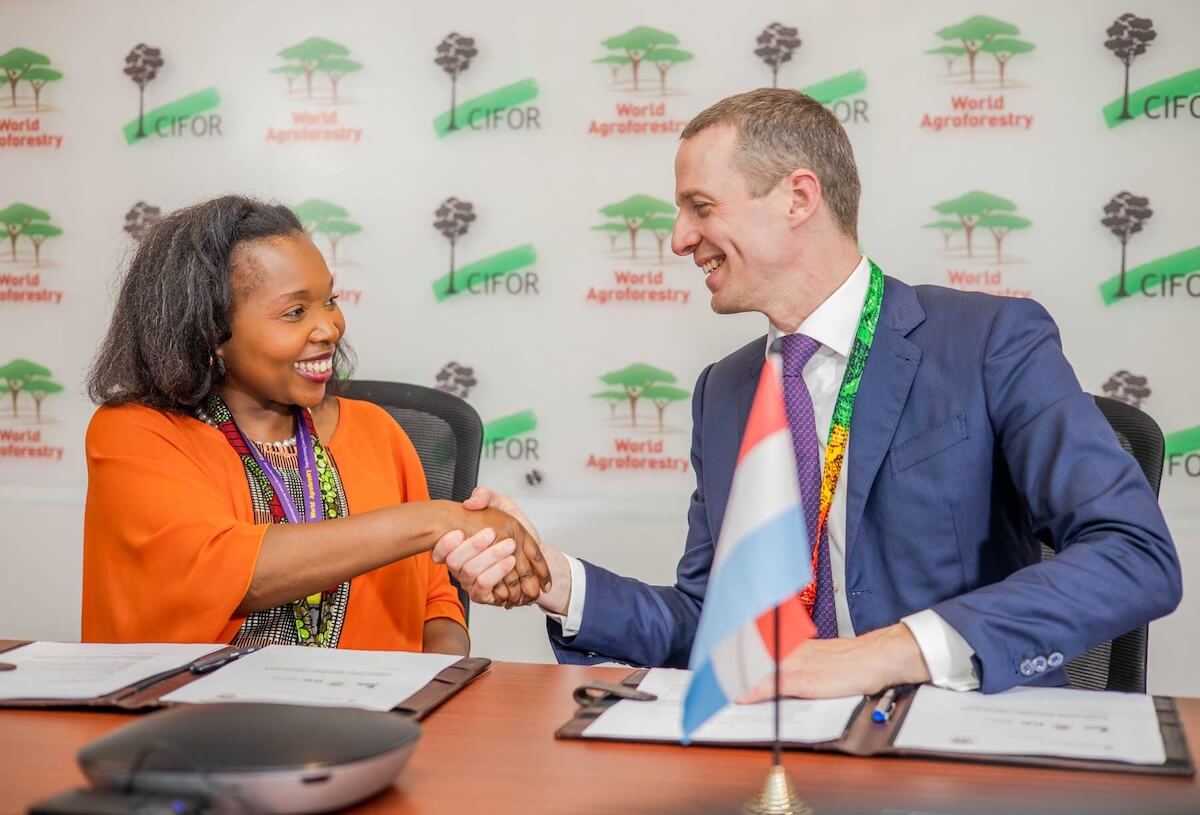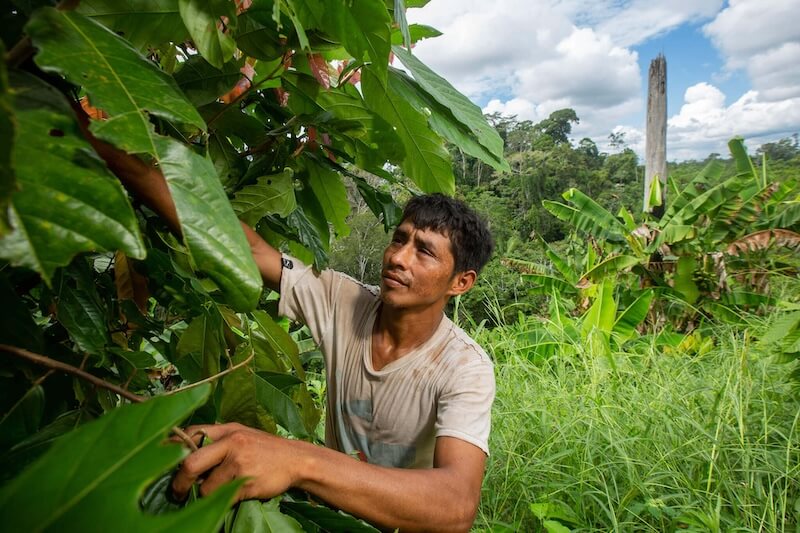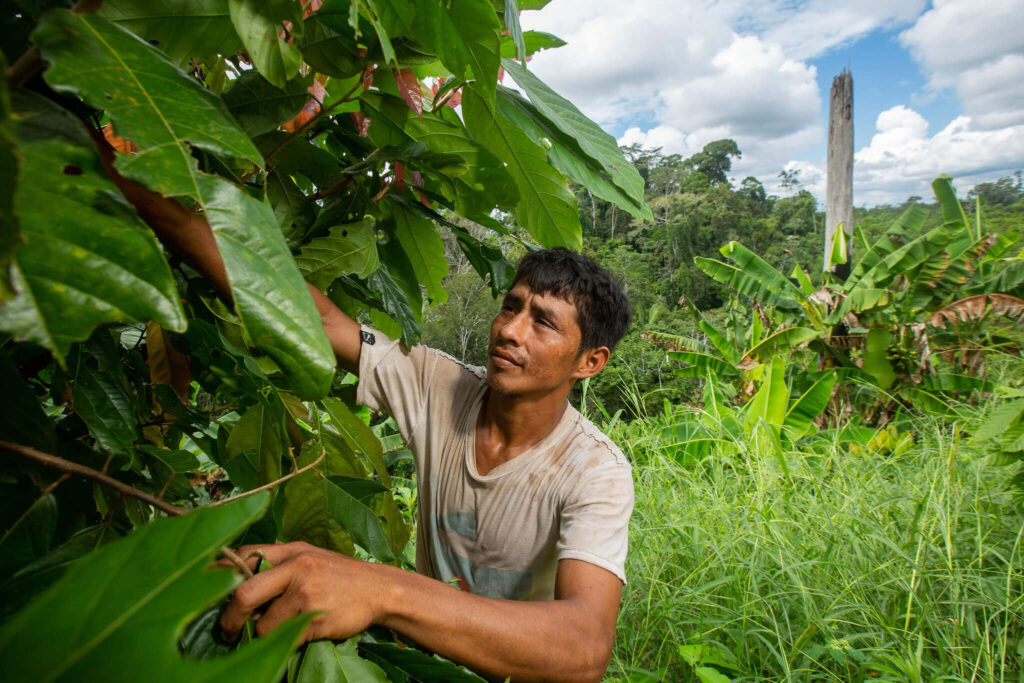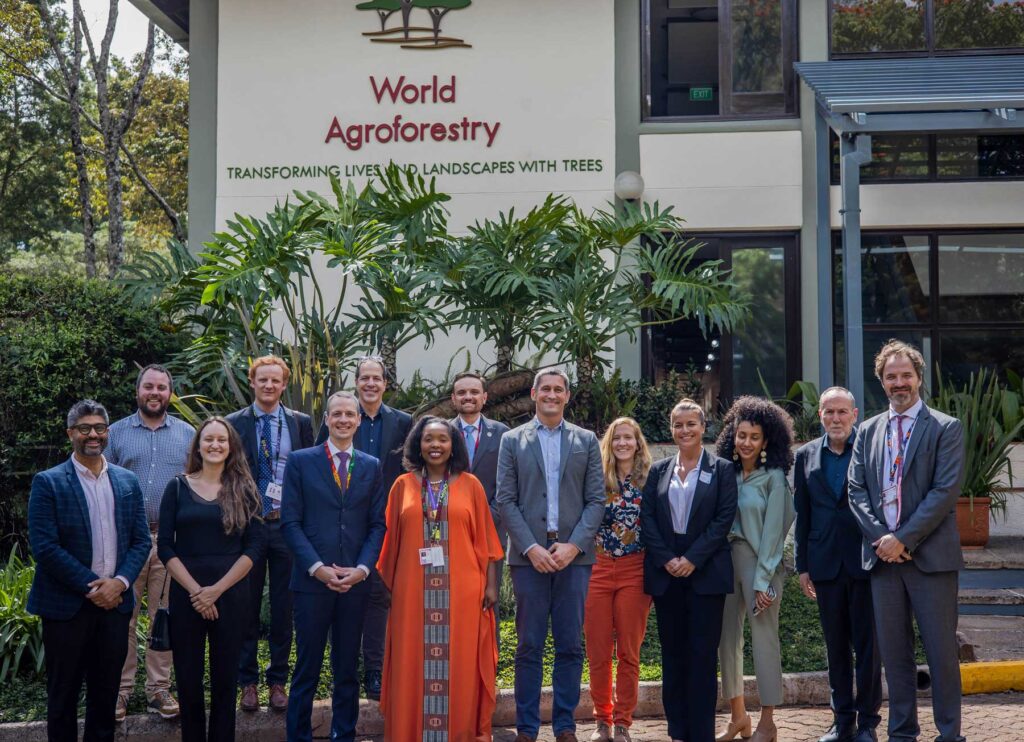
Resilient Landscapes Luxembourg (RLL), a flagship initiative jointly developed by the Ministry of the Environment, Climate and Biodiversity (MECB) of the Grand Duchy of Luxembourg and the Centre for International Forestry Research and the World Agroforestry Centre (CIFOR-ICRAF), has been launched to accelerate the urgently needed scaling up of investment in sustainable landscapes.
Science is a key ingredient in ensuring evidence-based quality investments in Nature-based Solutions (NbS) to prevent climate change and biodiversity loss. Science also guides the design of innovative tools that support high-level impact ambitions and commitments by providing concrete scientific evidence and solutions to those global challenges. While the relationship between science and business has been evolving, there is still a need to improve the dialogue between the two fields to create synergies with substantive impact.
In an effort to address this challenge, the Grand Duchy of Luxembourg and CIFOR-ICRAF established Resilient Landscapes Luxembourg (RLL), to connect science with high-impact NbS investment opportunities throughout the geographies of landscape investment. In doing so, the initiative is aligned with result-binding commitments which are being made under Luxembourg initiatives such as the Luxembourg International Climate Finance Strategy (2021-2025), Luxembourg’s National Strategy and Action Plan, in an effort to fulfil its international commitments under the Kunming Montreal Global Biodiversity Framework, and the Paris Agreement.
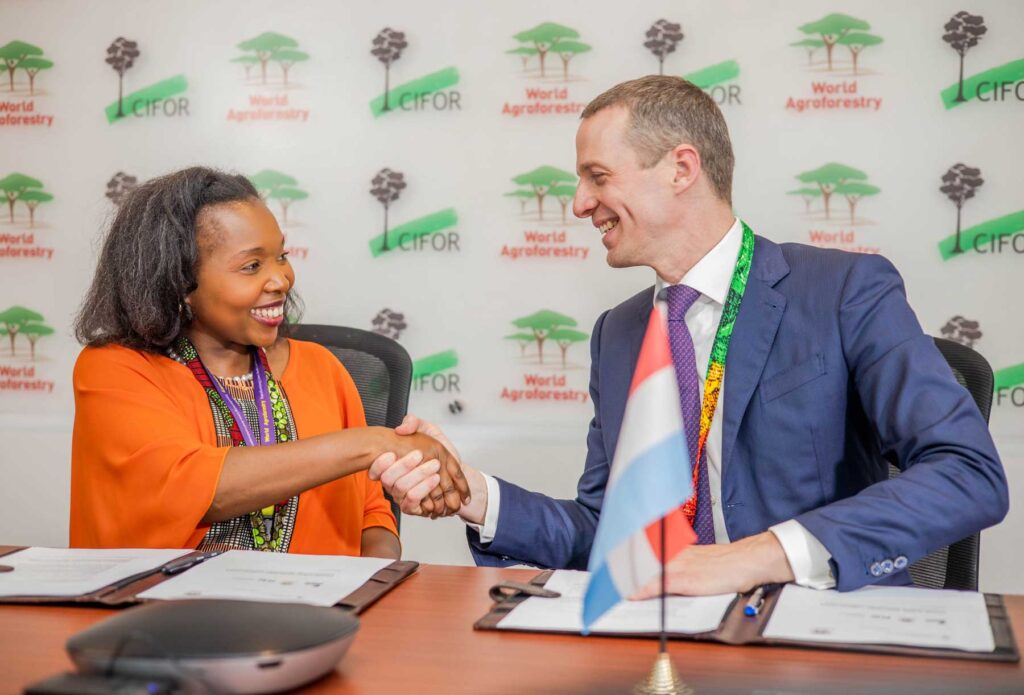
Luxembourg and CIFOR-ICRAF are committed to foster synergies between biodiversity and climate by protecting and leveraging nature as the foundation of a sustainable economy,” said Serge Wilmes, Minister of the Environment, Climate and Biodiversity, Grand Duchy of Luxembourg. “Our priorities are focused on advancing science-based environmental solutions that mobilize government, civil society, and the private sector. The need to direct our efforts towards nature-based solutions, and to address the climate and biodiversity crises simultaneously, is becoming more urgent.”
“Science-driven nature-based solutions come to life when the right players understand each other and connect in action with shared values,” said Dr. Éliane Ubalijoro, Chief Executive Officer of the Center for International Forestry Research and World Agroforestry (CIFOR-ICRAF). “Nature needs funding and funding needs knowledge. Such synergies do not come about spontaneously, which is why, together with the Grand Duchy of Luxembourg, CIFOR-ICRAF has established RLL to effectively connect the academic, business, and public spheres.”
In the coming years, the partnership will leverage funding for Nature-based solutions. CIFOR-ICRAF as the world’s leading development organization on terrestrial natural capital research together with Resilient Landscapes, a team of non-scientists within CIFOR-ICRAF, speaking the language of both science and business will contribute with its joint knowledge to the success of the partnership. The catalytic effects of Luxembourg’s expertise in finance and Resilient Landscapes’ expertise in Nature-based solutions will provide an opportunity to push topics such as ‘Business for Biodiversity’ and natural capital accounting.
More specifically, RLL intends to focus on incubating projects that have either emerged from the CIFOR-ICRAF research portfolio or that come from external sources and can benefit from CIFOR-ICRAF’s outstanding research database and network of partners and project activities in over 60 countries.
“As Luxembourg gathers and supports key players of impact investment, cross-player synergies are expected to take place immediately and, after a few years, results to speak for themselves,” said Stephane Perrier, Global Lead, at CIFOR-ICRAF Resilient Landscapes. “Telling project stories backed by hard evidence provided by CIFOR-ICRAF is the most influential tool to advocate for high-quality standards in the NbS sector.”
“The partnership is expected to embed RLL into Luxembourg’s existing suite of strategies, programs, and initiatives. Given the international recognition of Luxembourg’s dynamic impact finance sector and early adoption of sustainable standards for this industry, Luxembourg is in a unique position to contribute to the mission and governance of RLL as it drives quality standards in large-scale long-term NbS investments,” said Georges Gehl, Director of Climate and Sustainable Development at the Ministry of the Environment, Climate and Biodiversity.
“RLL will not only become an impact multiplier for CIFOR-ICRAF but offers a new entry point and an opportunity for CIFOR-ICRAF to ensure that its science and innovation is vastly visible and actionable to the private sector,” said Nevena Bakalar, Partnerships and Engagements Lead at CIFOR-ICRAF Resilient Landscapes.
By substantially contributing to the fight against climate change and biodiversity loss in a synergetic way, Resilient Landscapes Luxembourg (RLL) will also generate other environmental and social co-benefits. RLL environmental, social and governance assessments will be robust and science-based, with clear metrics and impact results to enable the private sector to make real changes for nature and people.

